How a journalist-turned-farmer-author is reviving tourism in his small village in Bihar
Through his writings and an in-house residency programme, journalist turned farmer Girindra Nath Jha expresses his love for his mati, motherland, and hopes to provide a better livelihood for Chanka village in Bihar.
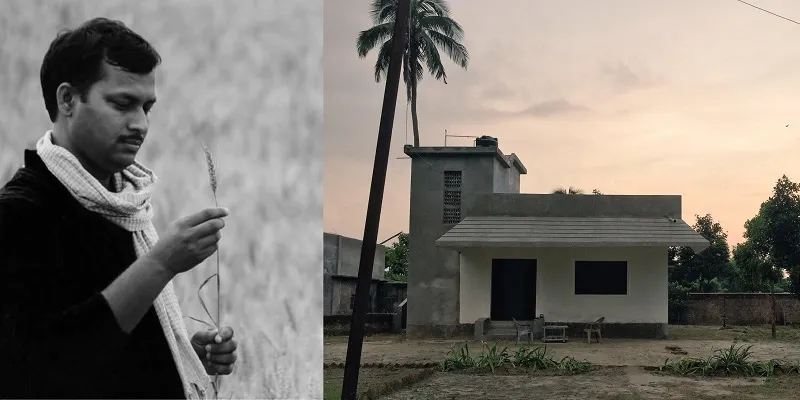
Love is often categorised and seen through the lens of romantic relationships. Rarely do we come across individuals who rise above this convention and work, not just in speech but in deed as well, towards their love for the motherland.
Unlike the multitudes that migrate to big cities in search of better opportunities, never to return, 34-year-old Girindra Nath Jha returned to his native village of Chanka in Bihar’s Purnea district. Despite 12 long years in New Delhi and Kanpur, Girindra says his love for his mati can never be replaced by the glamour of the metros.
Ishq main mati sona
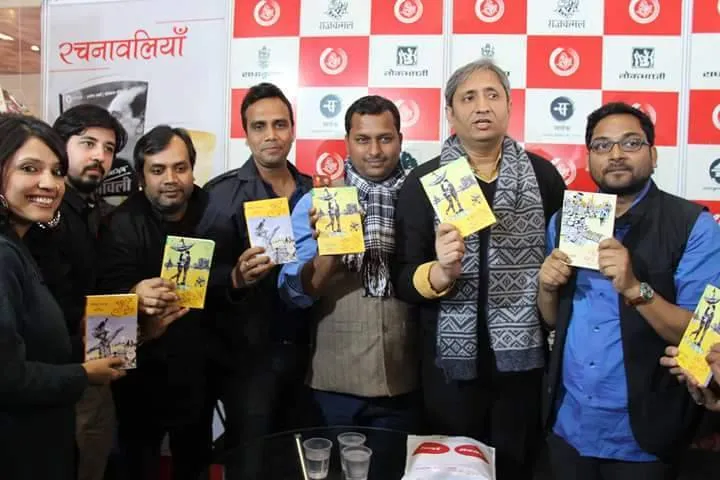
Girindra chronicles his love for his village in his book, Isha Main Mati Sona, and reminisces over the love stories he has witnessed throughout his life with gaon as a central point in the plot.
He believes that mati, earth, is a symbol. The love which an individual experiences in New Delhi, on a university campus, is the same love which occurs in a village. “Only the form is different,” Girindra explains. Inspired by real-life characters, Girindra celebrates the love he has witnessed in the farmer community for his land, agriculture, and mati.
“And this is why I always talk about mati, your roots, your true calling. One should always go back to their roots. I am not saying that you should leave everything, but you should be connected somehow. Whatever you earn, try to give back a little to your native place. And that is why Ishq Main Mati Sona. You need to start investing slowly, and, little by little, your land will start to reap gold one day,” he says.
Girindra is the second author who has published his book in Rajkamal Prakashan’s ‘LaPreK’, Laghu Prem Katha or ‘short love story’, series. The book has already become a bestseller and the series is hailed by some as the revival of dying Hindi literature. The writing style was born on social media where many writers like veteran journalist Ravish Kumar and university professor Vineet Kumar nostalgically discussed the love stories witnessed in the past and the status of love in this era of digital romance.
Revisit the local flavour
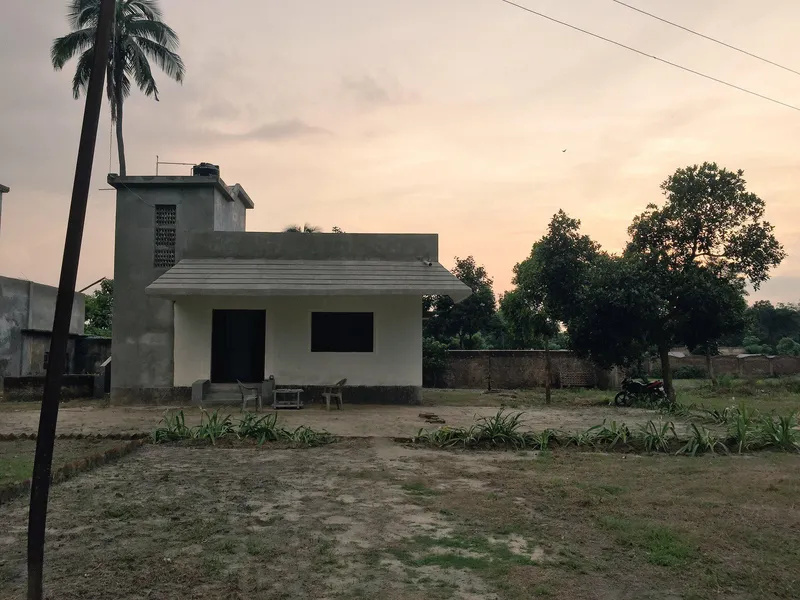
In his quest to give back to his land, Girindra has now started the Chanka Residency programme where he offers a week-long stay in his house to any individual who wants to experience village life.
His blog, Anubhaw, gained a lot of popularity on Facebook and was widely shared by many individuals due to its rich content filled not only with farming and agriculture tips but also chronicling the beauty and nostalgia associated with village life. People from all over the world started to contact him via social media and expressed their wish to visit Chanka.
The residency programme offers an in-house library and two bedrooms. The guests get a chance to enjoy the flavour of a traditional village lifestyle. They participate in organic farming with Girindra at his farm, enjoy local folk music, cuisine and art, and discuss Sahitya literature at length.
“I feel that the gaon is slowly getting finished, and the residency programme is my effort to preserve the essence of that village life. Through this programme, I want to enable a system where an outsider gets the perspective of the village and at the same time, generate revenue for the villagers,” Girindra says.
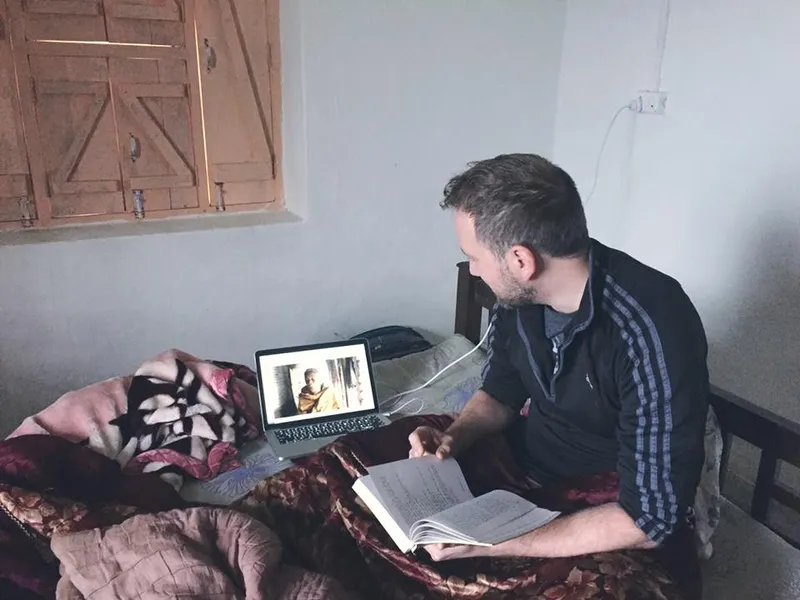
Girindra fears that fast-paced development is slowly encroaching upon the village life in Chanka. ‘Vikas’ is important but shouldn't come at the cost of destroying the soul of the village. For example, he says, today in place of folk music, we have DJs, which is not bad, but we cannot let go of our folk music, our language, for it. There is a need to embrace the new while still holding on to the charm of our culture. If Indian Ocean can celebrate traditional folk music, then why should we finish this art, he questions. When we build a new pukka house, why not build a small mud hut next to it as a symbol of where we come from?
He says, “We are not backwards, only our thoughts are backward. We don't need money to preserve our past, we only need to broaden our minds and be accepting to all.”
Three years ago, Girindra started to plant a mini forest on his land, and today, it has become a jungle, home to a variety of birds. These spots become attractions for outsiders to visit the village, and in turn, help the villagers earn an income.
Revival of real tourism
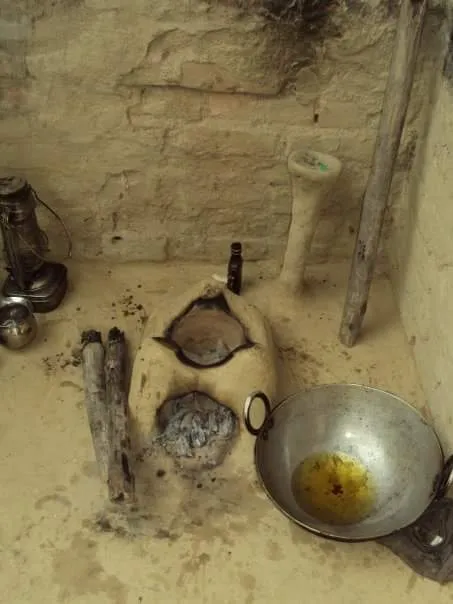
Girindra believes that the residency programme has the potential to become a model for rural tourism. Rural tourism does not mean mountains, lakes, and beautiful landscapes alone; it needs to extend to the agriculture and farmers’ lifestyle as well since this community forms the largest population in rural India. If people listen to the local art and culture, they will purchase local products as well, especially handicrafts made of bamboo and wood. Highly skilled workers are already present in the village. If we can find a way to teach them the art of packaging and presentation, even local artisans will get empowered.
“Now that I have become a farmer, I live four types of lives within a span of one year. Four lives, four crops. If you ask me, I will say that I can paint. I paint corn, potato, and mangoes all in my land. So, even in farming, there is a beauty involved.”
Prior to the residency programme, Girindra used to conduct a paddy festival in his village during the harvest season. The festival offered a chance for his city friends to experience the joy of reaping rice out of paddy. These small events have the power to generate employment and money, and if the government decides to invest, rural tourism can be revived.
Due to insufficient funds, Girindra is currently unable to scale the residency programme. He is providing employment and funding to 18 families, but his dream remains unfulfilled.
He elaborates, “My aim is to generate employment for the entire village. I am just waiting for someone to come forward and join us, be it through a CSR programme or a government initiative. Money is a highly motivating factor and it is very important for it to flow in the village. Today people are all moving out of the village as migrant labourers. I want to stop this.”
Here’s hoping he is successful in his endeavour.







